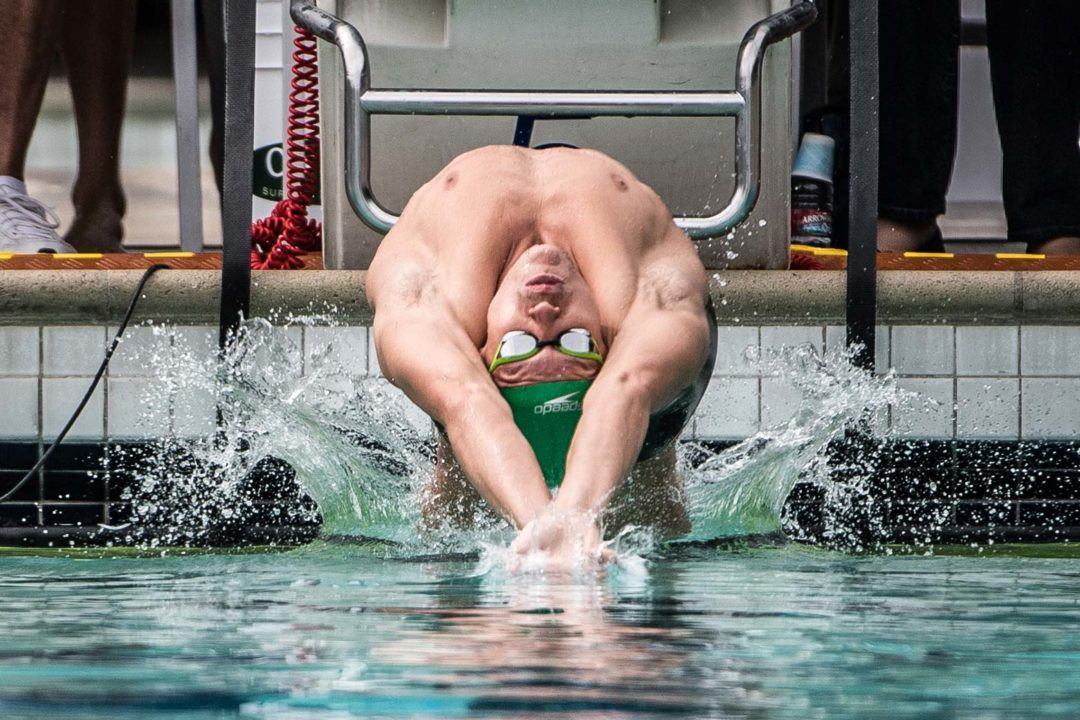At the 2016 Olympics in Rio, the United States saw its best overall medal haul since the 1984 Games in Los Angeles. In contrast, the nation of Australia suffered its worst Summer Olympic outing since claiming just 27 medals in Barcelona back in 1992. Despite being pegged to earn a top 5 finish among nations in Rio by its national Sports Commission, Australia nabbed just 29 medals to finish 10th in the overall standings.
But specific to swimming, Australia saw an improvement in their squad’s performance between 2012 London and 2016 Rio. After placing 7th in swimming medal table in London, Australia snagged 10 medals total to jump to 2nd place this time around, highlighted by individual golds by youngsters Kyle Chalmers and Mack Horton.
Despite double World Champions Mitch Larkin, Emily Seebohm and Bronte Campbell falling short of placing on top of the Olympic podium in their respective individual events, Swimming Australian CEO Mark Anderson says the team has made significant progress.
“Our team is a young team with much improvement still within them. Our individual gold medallists Kyle Chalmers and Mack Horton both debuted at the Rio Olympics, as did Madeline Groves who won silver in the 200m butterfly. Emma McKeon who finished the Games with four medals, the most of any Australian athlete, is another young member of the team. In total, it was the first Olympic Games for 24 members of the team.”
“We are also very fortunate to have a number of successful and experienced team members, mentoring and providing guidance.”
Anderson continues, “In relay events we managed to secure a medal in five of the six events, including gold and a new World Record in the Women’s 4 x 100m freestyle relay. The signs are strong for the future.”
“What has delighted me throughout and following the Rio Olympics is how every member of the team and the organisation had responded to the victories, defeats and challenges. Without exception, every individual at every level of our organisation has responded well.”
Although Anderson admits that ‘we did not maximize all of their opportunities in Rio’, he does attribute the team’s improvement partially to the nation’s ‘Winning Edge’ program.
“Australia’s Winning Edge is a 10-year strategy, and since 2012 we have made significant progress across all areas of our sport in collaboration with our high performance partners,” says Anderson.
The Winning Edge program was implemented by the Australian Sports Commission post-2012, with an aim of prioritizing funding towards sports that have the higher probability of success. In essence, the idea is that the sports receiving funding must reach certain measurable targets in order to justify the long-term investment.
“Our swimming high performance system is delivered collaboratively with many partners across our network. The progress we have made together is evidence of the support and collaboration that has been achieved, and we greatly appreciate the contribution of all stakeholder’s in our progress and results.”
Not everyone within Australian influence agrees, however. In the post-Rio review, several key Australian leaders have vocalized disappointment with components of the nation’s support infrastructure. We reported how Bill Sweetenham, who coached at the Australian Institution of Sport (AIS) in the 1980s and 1990s before becoming National Youth Coach for Swimming Australia in 1995, is calling for Aussie Head Coach Jacco Verhaeren and High Performance Manager Wayne Lomas to step down and for fresh leadership to take over.
AOC President John Coates is quoted as saying that the Australian Sports Commission’s practice of placing businessmen as the heads of Olympic sport has failed and said, “It is up to the board of the ASC to determine the future of Winning Edge.”
Anderson defends the Winning Edge program, stating,“We are united in our pursuit to build on the progress we have made. We will challenge ourselves to improve further on our performance. And together, we will work collaboratively with all of our partners to ensure that we apply the lessons and build on the progress that we have made. Australia’s Winning Edge strategy is the foundation that will ensure that this all occurs.”
Swimming Australia President, John Bertrand AO said, “We have made progress and we have the talent to challenge the world again in Tokyo 2020. We can and will learn from our Rio experiences.
“Like any high performance organisation, we continually review all aspects of what we do. This process has commenced already. We will continue to challenge ourselves,benchmark ourselves across world’s best practice and implement the findings.
“We are pleased and endorse the ASC’s announcement that, in line with their previous plans, they are undertaking a review and refining Australia’s Winning Edge following the Rio Olympics. This is a good process and is aligned to our own plans and we will work with them to ensure both reviews work in tandem.
“We support the core fundamentals of Australia’s Winning Edge. It is a rigorous process that evaluates and sets benchmarks on all areas of our sport, and as a sport we accept accountability for the results that we achieve.
“We achieved a number of the targets that we set for Rio but not all. In reviewing our program and performance we will ensure we apply world’s best practice to all areas of our high performance program. We have a great base to build on as we look forward to the Gold Coast Commonwealth Games in 2018 and the Tokyo Olympic Games in 2020.”

Jacco Verhaeren and Wayne Lomas should resign, or face the sack. There was a massive under performance versus their potential. The management and coaching staff have to take responsibility. After all, you cant fire the swimmers.